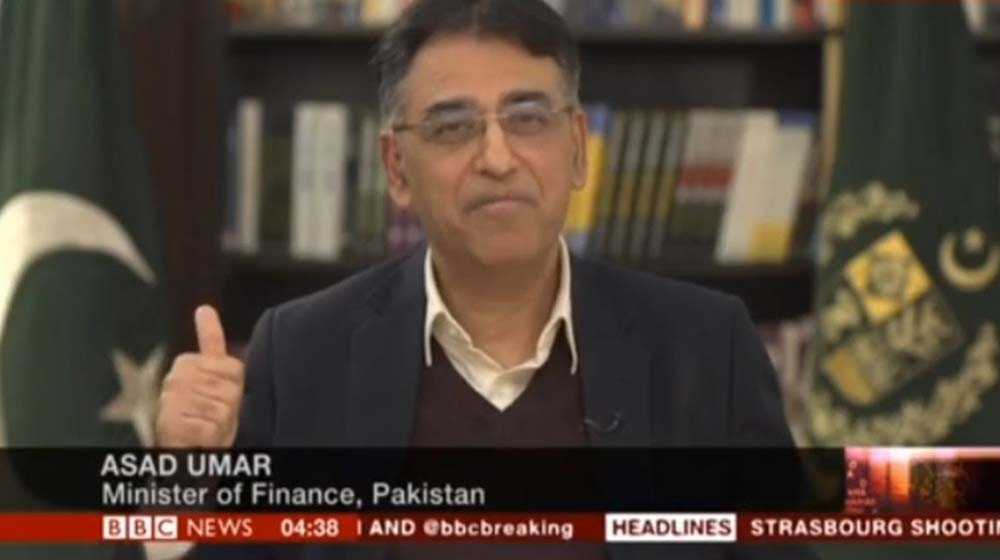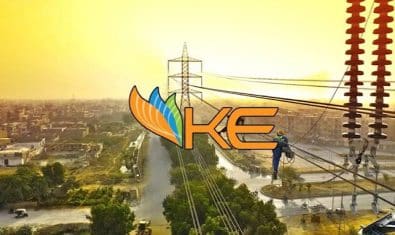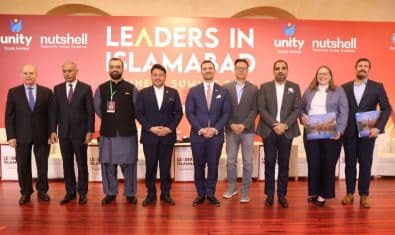Finance Minister Asad Umar has defended the government’s decision to approach the International Monetary Fund (IMF) and friendly countries for bailout packages despite Prime Minister Imran Khan’s pre-election claim that he would be ashamed to go abroad to beg for money.
The Minister’s defense came during his talk in BBC’s program ‘HARD-Talk’ where he answered a barrage of questions regarding the government’s performance in addressing different issues especially the economic crisis the country, China-Pakistan Economic Corridor (CPEC) and the Chinese loans.
When the program’s host referred to Prime Minister Imran Khan’s statements during the country’s general elections where he stated that he would be ashamed to go abroad and ask for money, Asad Umar replied:
By the time the government came into power, it was a very well-known fact that the country needed an economic bailout. I pointed this out to the media, the print media, as well as the international media, and this is something that is not to be proud of. So if he [Imran Khan] has to do it, he is ashamed of it, but that is what we have had to do.
ALSO READ
IMF Still Wants the Govt to “Do More” for a Bailout Package
To a question about PTI government’s ability to put Pakistan on a different course, and its approach to Saudi Arabia and China for economic assistance, the finance minister added,
The real challenge, and the real issue here is, [something that we will be judged on in the future], did we take the right decision of setting the country’s economy on a path where this will be the last IMF programme that the country will have to take?.
On the current course of action, he further stated,
A very clear direction has been set. Pakistan now has a very clear strategy, [unlike before] which was consumption-led imported capital finance that has repeatedly put the country into these economic issues. Until we move Pakistan towards domestic resource mobilization, productivity-led, export-oriented economy, we will not be able to move out of this begging-bowl syndrome.
Pakistan has already devalued the currency six times since December 2017, slashing its value by more than a quarter, and hiked its interest rate by 275 basis points since January, to 10 percent.
Previously, PM Imran Khan had said the government was trying to bring down the current account deficit before approaching the International Monetary Fund (IMF). The IMF package always put a burden on the people and increases unemployment; however, friendly states like China, Saudi Arabia and the UAE had given a good response to Pakistan to cope with the situation.
ALSO READ
Pakistan Can Afford To Wait For An IMF Bailout: Asad Umar
Pakistan, on November 19, received the first tranche of $1 billion from Saudi Arabia under the $6-billion financial package aimed at stabilizing the fast-dwindling foreign currency reserves. Earlier, the reserves had dropped to a four-and-a-half-year low of $7.48 billion by November 9, 2018, according to the State Bank of Pakistan (SBP).
Asad Umar dispelled the impression that the the PTI-led government was unable to tackle the country’s economic woes, as it approached countries which did not impose the same ‘rigorous’ conditions as the IMF, and stated,
The sequence of actions [which is not as per what is being said] had been that when I became the finance minister, I invited the IMF in the first 10 days of becoming the finance minister, and had real conversations with them. We have not waited for the IMF to come to us, and tell us what we need to do for our own economy or impose any sanctions on us. We have done that without the IMF’s assistance.
The Minister defended the government’s decision to delay the IMF bailout programme and take loans from China and Saudi Arabia,
In the very first 100 days, we have increased gas prices, we have increased electricity prices, we have put in a supplementary finance budget where we increased taxes. The policy rate has been increased by the central bank, the Rupee has been devalued.
Both the monetary policy and the fiscal policy have been moving in the very direction of the reforms that are needed. We don’t need IMF to dictate us to do that, because we believe this is what’s necessary. However, the path for reforms is different in the IMF as we stand today, and what we think is right for us. There is no difference of opinion about what needs to be done between us [the government and the IMF].


























